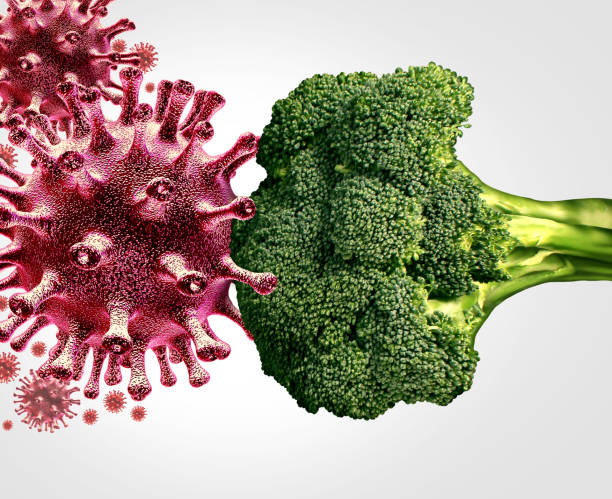 Cancer is a growing public health concern in the US ranking as the second leading cause of death for adults living in the US. According to the American Cancer Society (ACS) about 18% of all cancers are diet-related and many of these cancers can be prevented through diet and exercise (ACS, 2020).
Cancer is a growing public health concern in the US ranking as the second leading cause of death for adults living in the US. According to the American Cancer Society (ACS) about 18% of all cancers are diet-related and many of these cancers can be prevented through diet and exercise (ACS, 2020). People living with cancer often experience physical pain, loss of productivity, and decreased quality of life. Making sustainable healthy choices is key for combating the detrimental effects of Cancer. The American Institute for Cancer Research (AICR) has recently updated evidence-based dietary guidelines to help lower risk for developing certain cancers. To view these guidelines please click here.
What: Follow a plant-based diet pattern. Evidence demonstrates that diets made up of a majority of plant-based foods such as whole grains, vegetables, fruits, and legumes (beans and lentils) lower risks for cancer and contribute to overall health.
Why: Plant-based diets are high in fiber, nutrients, and phytochemicals which are natural compounds found in plants that protect against pathogens, viruses, and bacteria and may protect against cancer.
How: New American Plate 2/3-1/3 Model. The New American Plate (NAP) suggests covering 2/3 of your plate with plant-based foods at each meal and the remaining 1/3 filled with lean animal-based protein such as seafood, poultry, and dairy foods.
Standard Plate:  vs The New American Plate:
vs The New American Plate: 
Load up on Fiber
Dietary fiber can help protect the intestinal lining and improve bowel movements. High-fiber diets can help with increased satiety leading to better weight control and weight loss which is linked to reduced cancer risk. The AICR recommends a total dietary fiber intake of 30 grams.
Fight back with Unprocessed foods
Unprocessed or minimally processed plant-based foods contain many nutrients and other compounds that can influence the expression of various genes as well as reduce inflammation and destruction of abnormal cells.
All plant-based foods are not created equal
Although snacks, desserts, and candies are considered plant-based, these high-fat and sugary foods are highly processed and can lead to excessive weight gain. Excess body fat is related to at least 12 dozen cancers. Consuming less than 10% of calories from these foods is recommended to maintain a healthful diet.
Limit Alcohol consumption
Alcohol (ethanol) found in beer, wine, and distilled liquor, is shown to increase the risk of many forms of cancer. In general, recommendations for moderate alcohol consumption are two drinks (e.g., 12 oz beer, 8 oz malt liquor, or 5 oz wine) or less for men and one drink or less per day for women. However, there is no “safe” amount of alcohol that does not influence the risk of cancer. Research shows that consuming as little as one drink per day increases the risk of breast and esophageal cancer.
Tips for transitioning to the New American Plate
- Aim for a variety of fruits and vegetables to optimize your intake of different nutrients and phytochemicals.
- The NAP is a framework for healthy eating and offers flexibility for customizing your diet to fit your likes and preferences as well as your cultural needs.
- If including red meat in your diet limit the amount to 12 to 18 ounces a week (~3 4-6 oz portions a week). Aim for unprocessed red meat rather than processed meats such as bacon, sausage, and hot dogs. There is strong evidence that consuming processed meats increases the risk of colorectal cancer.
References
- American Cancer Society (June 2020). American Cancer Society | Guideline for Diet and Physical Activity.
- American Institute of Cancer Research (2024). Using healthy eating to lower cancer risk. Accessed https://www.aicr.org/cancer-prevention/healthy-eating/
- Center for Disease Control and Prevention (May 2024). About moderate alcohol use. https://www.cdc.gov/alcohol/about-alcohol-use/moderate-alcohol-use.html
- Ranjan A, Ramachandran S, Gupta N, et al. Role of Phytochemicals in Cancer Prevention. Int J Mol Sci. 2019;20(20):4981. Published 2019 Oct 9. doi:10.3390/ijms20204981
- National Cancer Institute (January 2024). Cancer causes and prevention. Accessed https://www.cancer.gov/about-cancer/causes-prevention/risk/diet
